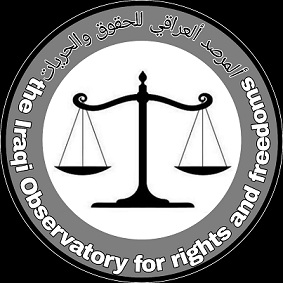The Humanitarian Crisis in Iraq: Displacement and Political Allegiances
Iraq has been facing a dire humanitarian crisis for years, with millions of citizens suffering due to ongoing conflicts, political instability, and economic turmoil. The situation has been further exacerbated by internal divisions and regional tensions. One of the most pressing aspects of this crisis is the displacement of people both within Iraq and abroad, as well as the influence of foreign powers on the country’s political landscape.
The Humanitarian Situation and Displacement
The humanitarian situation in Iraq remains severe, with millions of Iraqis affected by years of violence and instability. The country has experienced multiple waves of displacement due to conflicts, including the U.S.-led invasion in 2003, the rise of ISIS, and subsequent military campaigns against the group. According to estimates from the United Nations, around 1.2 million people are internally displaced within Iraq, while millions more have fled the country in search of safety and better living conditions.
These internally displaced persons (IDPs) often live in makeshift camps, lacking access to basic necessities such as clean water, healthcare, and education. The deteriorating infrastructure, high unemployment rates, and economic challenges have only compounded the difficulties faced by displaced individuals and communities. Many have found it difficult to return to their homes due to insecurity, damaged property, or ongoing conflicts in their regions.
Furthermore, Iraqi refugees abroad face challenges in host countries, where they struggle with integration, employment, and access to services. The international community’s attention has shifted over the years, leading to dwindling humanitarian aid and support for displaced Iraqis. This has left many vulnerable populations without the resources they need to rebuild their lives.
State Allegiance and Iranian Influence
The political situation in Iraq is complex, with many accusing the Iraqi government of being heavily influenced by Iran. This relationship has sparked controversy both domestically and internationally, with critics arguing that Iran’s influence often undermines Iraqi sovereignty and serves to escalate sectarian tensions within the country.
Iran’s involvement in Iraq is evident through its support for various political factions, militia groups, and economic ventures. After the fall of Saddam Hussein’s regime in 2003, Iran capitalized on the power vacuum, forming alliances with key Shia political leaders and militias, many of which were integrated into Iraq’s Popular Mobilization Forces (PMF). These groups have played a significant role in Iraq’s security landscape, particularly during the fight against ISIS. However, their allegiance to Iran has raised concerns about their loyalty to the Iraqi state and the impact on Iraq’s internal stability.
Iran’s influence has also extended into economic matters, with significant investments in Iraq’s energy sector and trade. The economic interdependence between Iraq and Iran has made it challenging for the Iraqi government to pursue policies that are entirely independent of Iranian interests. This has created a perception that Iraq’s government is more inclined to prioritize Iranian objectives over the well-being of its own citizens, leading to frustration among many Iraqis who feel their country is not acting in their best interests.
Conclusion
The humanitarian crisis in Iraq is an ongoing challenge that requires both domestic and international attention. The displacement of millions of people, both internally and abroad, highlights the severe impact of continuous conflict and instability on the Iraqi population. Coupled with the perception of an Iraqi government swayed by Iranian interests, the future remains uncertain for many in the country.
To address these challenges, there is a need for increased international humanitarian aid, comprehensive policies that facilitate the safe return of displaced individuals, and political reform to ensure that Iraq’s sovereignty and the interests of its people are prioritized. The global community must not forget the plight of Iraq’s displaced population, and efforts should be made to ensure that the country’s political alliances do not come at the cost of its citizens’ welfare.




